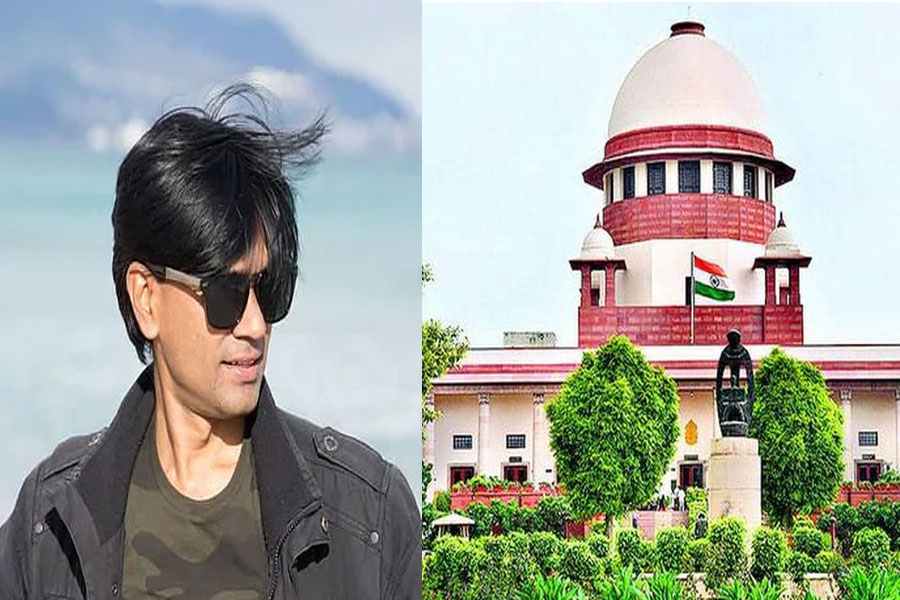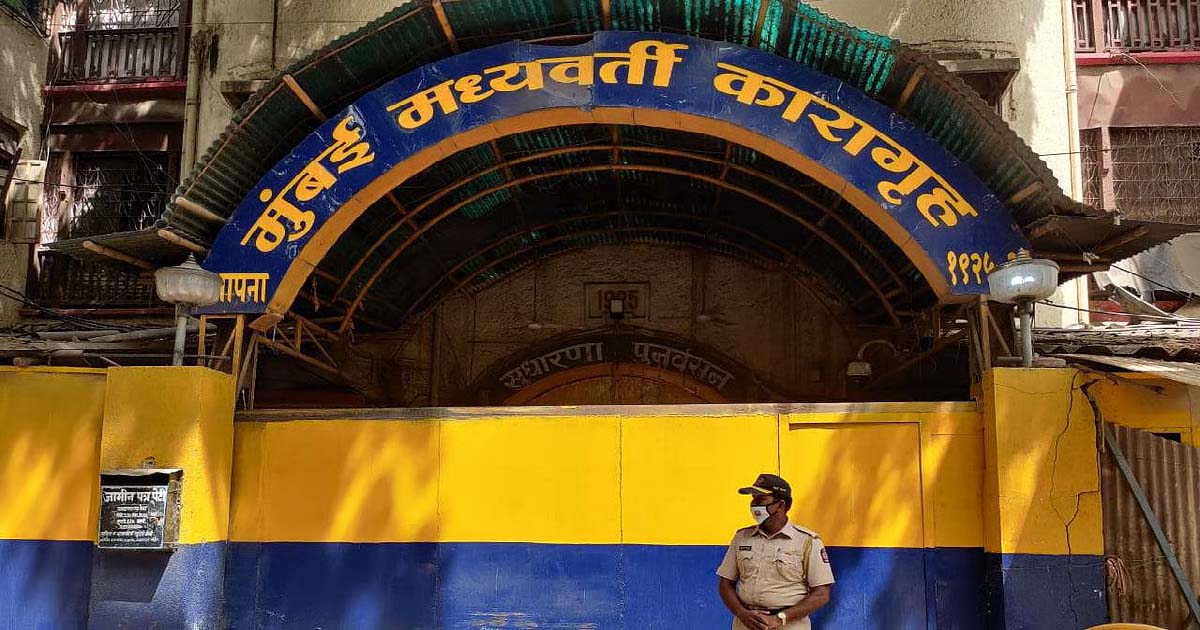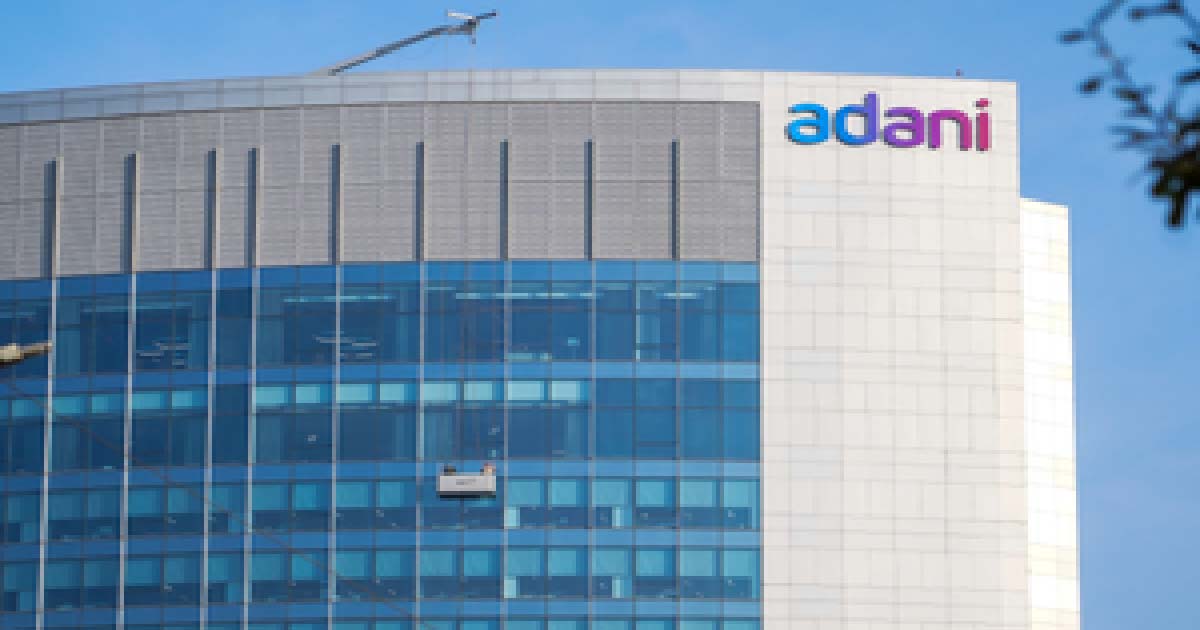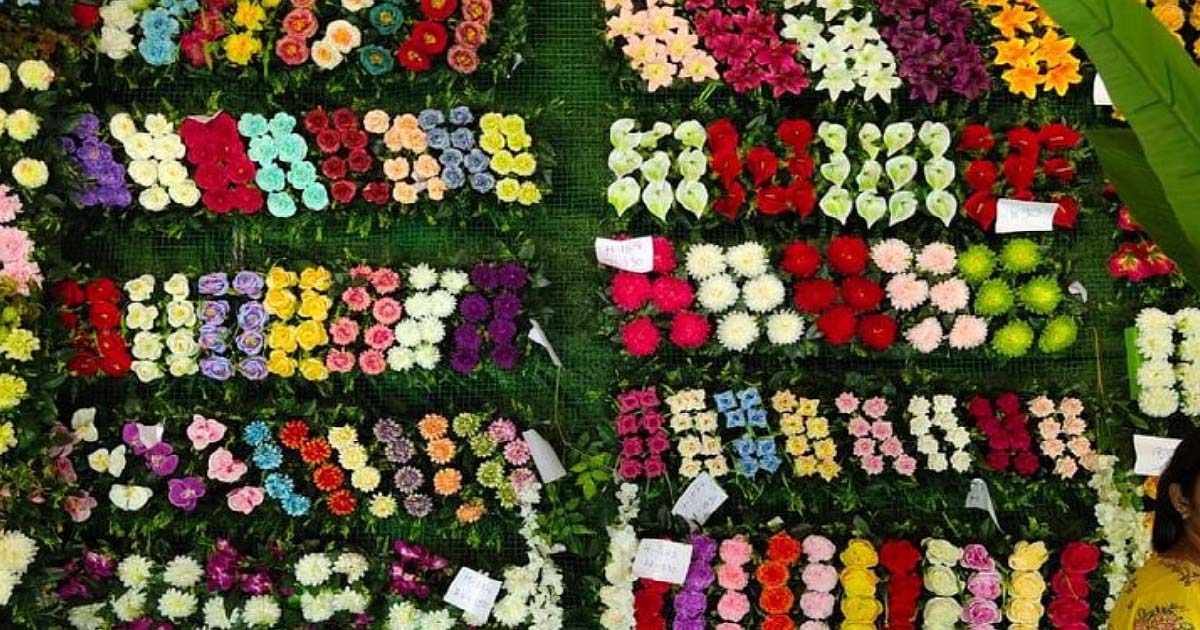National News
Suprem Court agrees to examine Zubair’s plea seeking bail, quashing of UP FIR

Alt News co-founder Mohammed Zubair on Thursday moved the Supreme Court challenging the Allahabad High Court’s refusal to quash FIR registered against him for allegedly calling Hindu seers “hatemongers” and the top court agreed to list the matter on Friday.
Senior advocate Colin Gonsalves, representing Zubair, mentioned the matter before a vacation bench of Justices Indira Banerjee and J.K. Maheshwari and sought urgent hearing on the plea.
Gonsalves said that a look at the FIR shows that there is no crime and there are death threats against his client. He added that they went to the Allahabad High Court, but no relief was granted and the court said it was premature.
“Bail is sought on emergency. There are death threats on the Internet. If possible, list today at 2 pm…,” said Gonsalves.
The bench agreed to list the matter and posted it for Friday.
The top court, in its order, said: “It is mentioned that there is urgency in the matter. Let the matter be listed on 08.07.2022 before the appropriate Bench subject to assignment.”
In June, a case was registered against Zubair at the Khairabad police station on a complaint lodged by Hindu Lion Army district president Bhagwan Sharan. The case was registered under IPC section 295A (deliberate and malicious act intended to outrage religious feelings) and section 67 of the IT Act. On June 27, Zubair was arrested by the Delhi Police for allegedly hurting religious sentiments through one of his tweets. Zubair moved the top court against the Allahabad High Court order.
The plea contended that there is a new strategy afoot of the police in communal crime cases, which is to register FIRs against those engaging in hate speech and communal crimes, and also rope in all secular elements monitoring such crimes and protesting police inaction against the wrongdoers. The plea sought a stay of the investigation on the Sitapur FIR and also a direction to the UP government not to proceed, prosecute or arrest him.
On July 2, a Delhi court rejected the bail plea of Zubair in connection with an ‘objectionable tweet’ allegedly posted against a Hindu deity, and granted his 14-day custody as sought by the Delhi Police. He will be next produced before the court on July 16.
The Delhi High Court had earlier issued a notice to the Delhi Police on a plea moved by Zubair challenging the Patiala House Courts order allowing his police custody and seizure of his laptop in connection with the alleged objectionable tweet.
Crime
Mumbai Crime: Undertrial Prisoner Assaults Policeman Inside Arthur Road Jail, Case Registered

Mumbai: A shocking incident has come to light from Mumbai’s Arthur Road Jail, where an undertrial prisoner allegedly assaulted a police constable on duty.
The accused, Lokendra Uday Singh Rawat (35), is reported to have headbutted Police Constable Hani Baburao Wagh (30), causing injuries to his nose, and also abused and pushed other on-duty police personnel. A case has been registered in this connection at the N. M. Joshi Marg police station.
According to the FIR, the complainant, Police Constable Wagh, is attached to Armed Police Division–2, Tardeo. On January 27, he reported for his 24-hour day-duty shift at Arthur Road Jail at around 8 am and was assigned security duty at the main entrance of the prison.
At around 9 pm, Armed Police Constables Suresh Sandu Mali and Sachin Chavan brought undertrial Lokendra Rawat back to the jail after producing him before the Dindoshi Court. Rawat allegedly appeared agitated and, after entering the jail premises, sat near the gate and began verbally abusing the police personnel on duty.
Constable Wagh asked Rawat to calm down and refrain from using abusive language. However, Rawat allegedly became more aggressive and continued shouting abuses. When Wagh approached him again to pacify the situation, Rawat suddenly headbutted him on the nose with force.
As a result, Constable Wagh sustained injuries and started bleeding. Fellow constables Sachin Chavan and Suresh Mali immediately intervened, restrained the accused, and informed the on-duty prison authorities about the incident. Rawat was subsequently sent for medical examination to Sir J.J. Hospital.
After receiving medical treatment, the injured constable lodged a formal complaint on January 28 at the N. M. Joshi Marg police station. Based on the complaint, police have registered a case against the undertrial under relevant sections of the Bharatiya Nyaya Sanhita (BNS). Further investigation is ongoing.
Business
JCRA assigns landmark ratings to Adani Ports, Adani Green and Adani Energy Solutions

Ahmedabad, Jan 30: In a significant milestone for the Adani Group’s global credit journey, Japan Credit Rating Agency (JCRA) has initiated ratings of three Portfolio companies — Adani Ports and SEZ (APSEZ), Adani Green Energy Ltd. (AGEL) and Adani Energy Solutions Ltd. (AESL) — assigning long-term foreign currency credit ratings with a ‘Stable’ outlook to all three companies, it was announced on Friday.
Japan’s leading rating agency assigned Adani Ports and Special Economic Zone Ltd. (APSEZ) a A- (Stable) rating, representing a rare breach of the sovereign threshold by an Indian corporate by an international rating agency.
Moreover, Adani Green Energy Ltd. (AGEL) and Adani Energy Solutions Ltd. (AESL) have each been rated BBB+ (Stable). These ratings are at par with India’s sovereign rating of BBB+.
“These landmark ratings reflect the Adani Group’s commitment to disciplined financial management, strengthening balance sheet fundamentals, and world-class execution across our diversified infrastructure platform,” said Jugeshinder Singh, Group CFO, Adani Group.
“They reaffirm the depth and resilience of our business model and reflect the confidence global lenders, institutional investors, and capital markets place in our long-term strategy. This endorsement further strengthens our position as a leading partner in India’s infrastructure buildout and reinforces our commitment to delivering sustainable, high-quality growth,” Singh added.
Adani Ports’ strong rating underlines its strong credit profile, diversified asset base, and resilient cash-flow generation, and places it among a select group of Indian infrastructure companies to achieve an above-sovereign rating from a leading international rating agency.
The ratings also mark one of the first instances of Indian infrastructure platforms being assessed by JCRA at these levels, highlighting the Adani Group’s growing engagement with global rating agencies and its increasing alignment with international credit benchmarks.
APSEZ’s creditworthiness is at par with its subsidiary group, said the ratings agency, citing its superior infrastructure capabilities, consistently strong profitability, stable long-term cash flows, and prudent financial management — positioning the company above India’s sovereign foreign-currency rating, though capped by the country ceiling.
It continues to reinforce its leadership through a diversified portfolio of 15 domestic and 4 international ports, handling nearly 30 per cent of India’s cargo and 50 per cent of container volumes, supported by a comprehensive four-segment integrated logistics platform spanning ports, SEZs, logistics, and marine services.
Adani Ports delivered rapid EBITDA expansion — from Rs 7,566 crore in FY20 to Rs 19,025 crore in FY25, and Rs 11,046 crore in H1 FY26 — while maintaining a conservative 1.8x net-debt-to-EBITDA, long-tenor funding structure, and strong liquidity position.
On the other hand, AESL continues to strengthen India’s energy backbone through rapid expansion in transmission, distribution, smart metering, and cooling solutions — backed by stable, regulated cash flows and strong governance that support its consolidated credit profile, said the ratings agency.
“With a fast-growing network of 26,705 ckm of transmission lines, 97,236 MVA capacity, award-winning distribution reliability, and a rapidly expanding 7.37 million-meter smart metering portfolio, AESL is delivering far superior growth to the sector and redefining benchmarks in efficiency, customer service, and operational performance,” it noted.
With over 16.7 GW of operational capacity as of September 2025 and more than 90 per cent of EBITDA generated from renewables, AGEL has rapidly expanded from just 2.5 GW in FY20 — supported by best-in-class development, superior plant load factors, cost efficiency, and advanced ENOC-driven operations.
“EBITDA growth from Rs 1,855 crore (FY20) to Rs 10,532 crore (FY25) and Rs 6,324 crore in H1 FY26, coupled with improved equity levels, diversified global funding access, and extended 9.4-year average debt maturity, positions AGEL to sustain its ambitious growth pipeline while maintaining financial stability,” said JCRA.
National News
Mumbaikars! The Iconic Flower Festival Is Almost Here At Byculla Zoo, Get Ready To Immerse Yourself in Colours

Mumbai: As Mumbai prepares to welcome early signs of spring, the Brihanmumbai Municipal Corporation (BMC) and the Tree Authority are set to host the Mumbai Flower Show 2026, a three-day floral celebration at the Veermata Jijabai Bhosale Botanical Udyan and Zoo (Byculla Zoo) from February 6 to 8.
The flower show promises to turn the historic botanical garden into a vibrant canvas of colours, fragrances and greenery. Entry to the festival is free, making it easily accessible for families, students, senior citizens and nature lovers across the city.
The exhibition will feature around 5,000 plants, including a wide variety of flowering plants, fruit-bearing trees and medicinal species. One of the key attractions this year will be the display of 13 national symbols recreated through floral arrangements, adding both visual appeal and educational value to the event.
Adding to the experience, stalls offering gardening tools, plants, fertilisers and related supplies will be set up, catering to gardening enthusiasts as well as those looking to begin their green journey. For citizens interested in hands-on learning, gardening workshops will be conducted on all three days, with a participation fee of Rs 1,000.
The arrangements for the flower show are being overseen by Deputy Commissioner (Parks) Chanda Jadhav and Parks Superintendent Jitendra Pardeshi, ensuring smooth coordination and upkeep throughout the event.
With Mumbai slowly transitioning into warmer days, the flower show offers a calm, nature-filled retreat right in the heart of the city. The BMC has invited Mumbaikars to step into this floral haven, unwind amid lush surroundings, and reconnect with nature during the three-day celebration.
The flower festival has, over the years, grown into a much-awaited annual event for the city. Last year’s edition saw large crowds at the Byculla zoo, with visitors drawn to colourful floral installations and creative displays themed around India’s national symbols. The vibrant arrangements and lush settings had turned the botanical garden into a visual treat, making the festival a popular weekend outing for families and nature enthusiasts alike.
-

 Crime3 years ago
Crime3 years agoClass 10 student jumps to death in Jaipur
-

 Maharashtra1 year ago
Maharashtra1 year agoMumbai Local Train Update: Central Railway’s New Timetable Comes Into Effect; Check Full List Of Revised Timings & Stations
-

 Maharashtra1 year ago
Maharashtra1 year agoMumbai To Go Toll-Free Tonight! Maharashtra Govt Announces Complete Toll Waiver For Light Motor Vehicles At All 5 Entry Points Of City
-

 Maharashtra1 year ago
Maharashtra1 year agoFalse photo of Imtiaz Jaleel’s rally, exposing the fooling conspiracy
-

 National News1 year ago
National News1 year agoMinistry of Railways rolls out Special Drive 4.0 with focus on digitisation, cleanliness, inclusiveness and grievance redressal
-

 Maharashtra1 year ago
Maharashtra1 year agoMaharashtra Elections 2024: Mumbai Metro & BEST Services Extended Till Midnight On Voting Day
-

 National News1 year ago
National News1 year agoJ&K: 4 Jawans Killed, 28 Injured After Bus Carrying BSF Personnel For Poll Duty Falls Into Gorge In Budgam; Terrifying Visuals Surface
-

 Crime1 year ago
Crime1 year agoBaba Siddique Murder: Mumbai Police Unable To Get Lawrence Bishnoi Custody Due To Home Ministry Order, Says Report




















